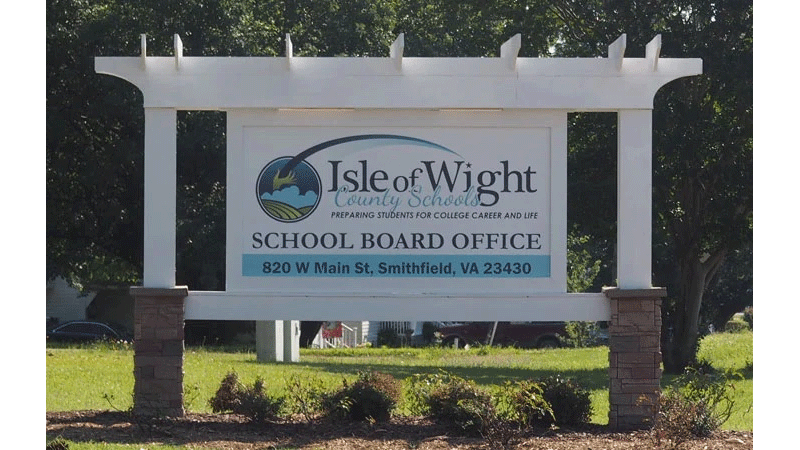Holland Trace sold
Published 7:03 pm Tuesday, May 26, 2020
|
Getting your Trinity Audio player ready...
|
CoHo Investments paid $1.2M
FRANKLIN
The Franklin Redevelopment and Housing Authority recently sold one of its low-income housing complexes — apparently as a means of paying some overdue bills.
Land transfer records filed in Southampton County Circuit Court for the month of March indicate Holland Trace — a 48-unit apartment building on South Street — was deeded to CoHo Investments LLC for $1.2 million. According to the records, Interim FRHA Executive Director Loretta Batten signed the deed of bargain and sale on Feb. 27 on behalf of the housing authority.
According to Virginia State Corporation Commission records, CoHo Investments LLC was formed on Jan. 17 and has a registered address of 115 W. Second Ave., Franklin. The city’s geographic information system website shows no other real estate holdings for this company, and in fact, has not yet been updated to reflect Holland Trace’s new ownership. According to Commissioner of Revenue Brenda Rickman, CoHo Investments does not appear to be exempt from local taxes.
James Reese, an accountant who has been working with the FRHA on and off since the summer of 2017, had discussed the sale during a March 9 joint meeting of the FRHA Board of Commissioners and Franklin’s City Council. It was he who had claimed the sale had been a means of paying overdue bills, after Mayor Frank Rabil had stated he and other members of the city government had received phone calls from contractors complaining of lack of payment from the FRHA. But even with the revenue from the sale, Reese had still estimated a $20,000 to $30,000 shortfall in getting all the FRHA’s vendors to a zero balance, stating at the joint meeting that some “won’t be able to get paid 100 percent.”
Holland Trace had been built in 2000 via a partnership between the FRHA and an entity known as a “syndicator.” That’s according to Neal Rogers, director of compliance and asset management for the Virginia Housing Development Authority. A syndicator, he explained, sells low-income housing tax credits to investors to fund the construction of affordable housing projects.
The city’s GIS website indicates this partnership — known as Holland Trace Limited Partnership — had retained ownership of the apartment complex through June 30, 2017, at which point it was deeded to the FRHA. Rogers then clarified that prior to 2017, the FRHA still had what he termed an “identity of interest” with the ownership of the property.
Similar arrangements had been made in 2013 and 2014 when the FRHA deeded three already-built apartment complexes — Berkley Court, Pretlow Gardens and Old Town Terrace — to two limited partnerships for the purpose of securing funding via low-income housing tax credits for renovations. This has since resulted in a legal dispute between the FRHA and Franklin’s city government. The city alleges that by virtue of these three properties having been deeded from direct FRHA ownership to partnerships, they no longer fall under the FRHA’s tax-exempt status, and as such, now collectively owe more than $400,000 in back taxes, penalties and interest. The FRHA, according to a lawsuit it filed against the city in April, claims it controls the general partner of the two partnerships, and therefore, these properties should remain under the FRHA’s tax-exempt status.
There does not seem to be any dispute, however, as to the status of Holland Trace’s new owner. Rogers and Southampton County’s Clerk of Circuit Court, Rick Francis, agree that CoHo Investments appears to be a separate entity from the FRHA.
“It looks like they spent more than $3,000 just to record [the transfer],” Francis said. “They might have been exempt from part of that cost if they were one in the same.”
Rogers added that despite Holland Trace having once been owned by the FRHA, it technically is not and never was public housing.
It is affordable housing, meaning because the apartment complex was built with funds from low-income housing tax credits, there is an extended use agreement that mandates a certain number of units must be set aside for households earning below 50 percent of the median income for the city of Franklin. Apartment complexes built with funds from low-income housing tax credits are appealing to those who have received housing choice vouchers through the U.S. Department of Housing and Urban Development, Rogers explained, because these vouchers are designed to ensure no resident is paying more than 30 percent of his or her income toward rent.
VHDA will continue to monitor Holland Trace for compliance with the extended use agreement, Rogers said. As such, Holland Trace’s new owners will be required to operate the property as it has been operated, meaning it will continue to serve low- to moderate-income individuals.





